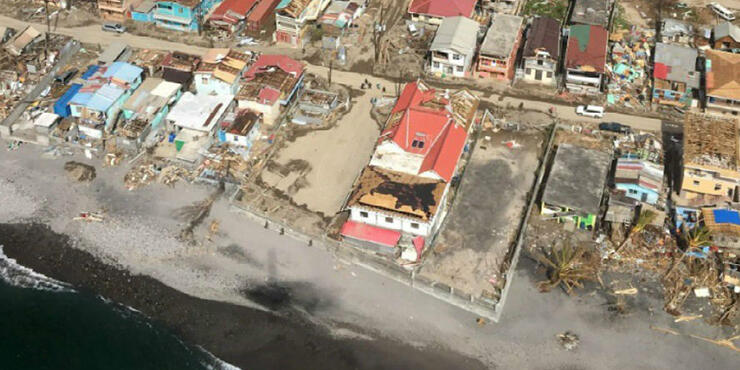
The Economic and Social Council convened a Special Meeting on “Aftermath of recent hurricanes: Achieving a risk-informed and resilient 2030 Agenda” on 24 October 2017. As the United Nations and the international community step up efforts to assist the affected countries, the ECOSOC Special Meeting aimed to highlight the economic, social and ecological dimensions of the recent hurricanes and earthquakes, and to enhance coordination in response, recovery, rehabilitation, reconstruction and development efforts in the aftermath.
The meeting underscored the need to act urgently and called for sustained and coherent international support to accelerate recovery, ensure risk-informed reconstruction, and strengthen resilience in all dimensions of sustainable development in the affected States. The President of ECOSOC has issued a Presidential Statement, which outlines immediate, medium and long-term actions to assist affected countries in their efforts to achieve a risk-informed and resilient 2030 Agenda for Sustainable Development.
Objectives of the special meeting of ECOSOC
This meeting will draw on recent experience of countries along with experts on the topic to:
- Discuss the current situation and the economic, social and environmental impacts of the natural disasters on the affected countries and how these will impact development gains and the countries’ capacities to implement the 2030 Agenda for Sustainable Development and achieve the SDGs;
- Share measures and practices by countries to manage and respond to the natural disasters, and draw lessons from the previous ones;
- Examine how the United Nations system, regional and international organizations, civil society organizations, the private sector and the scientific community can work better together at all levels to help countries effectively reduce disaster risk and strengthen resilience, prepare for and respond to future disaster events, with the support of risk financing instruments;
- Discuss the importance and mechanisms for accessing finance on concessional terms for climate vulnerable states, including SIDS;
- Discuss the importance of revisiting the criteria for country classification and the need to include vulnerability to economic shocks and natural disasters as a key consideration.
- Programme
- Concept note
- Presidential Statement
- Statement
- President of the Economic and Social Council [Opening and closing]
- President of the General Assembly
- Deputy Secretary-General
- Dr. Douglas Slater, Assistant Secretary-General, Human and Social Development, The Caribbean Community (CARICOM)
- Bios
- Flyer
Resources
- High Level Meeting on Hurricane Irma
- UN Secretary-General’s remarks at the High-Level Event on Hurricane Irma
- United Nations Development Programme (UNDP)
- Office for the Coordination of Humanitarian Affairs (UN OCHA)
- United Nations Office for Disaster Risk Reduction (UNISDR)
Latest News
- UN chief lauds Dominica's vision to become first climate-resilient nation after recent devastation (8 October 2017)
- In hurricane-stricken Barbuda, UN chief urges global solidarity, accelerated climate action (7 October 2017)
- A year after Hurricane Matthew, Haiti's children still incredibly vulnerable to disasters – UNICEF (5 October 2017)
- UN chief urges world to implement Paris climate accord 'with greater ambition' (4 October 2017)
- Relief operation in storm-battered Dominica ‘going in the right direction,’ says UN official (3 October 2017)
- UNICEF urges child-centred budget decisions for rebuilding of quake-hit areas in Mexico (2 October 2017)
- Aid community launches $31 million appeal for 'badly battered' Dominica (29 September 2017)
- UNICEF expands relief efforts in Latin America and Caribbean after month of ‘relentless’ natural disasters (27 September 2017)
- Storm-ravaged Dominica in urgent need of food and water, finds UN assessment team (25 September 2017)
 مرحباً بكم في الأمم المتحدة
مرحباً بكم في الأمم المتحدة